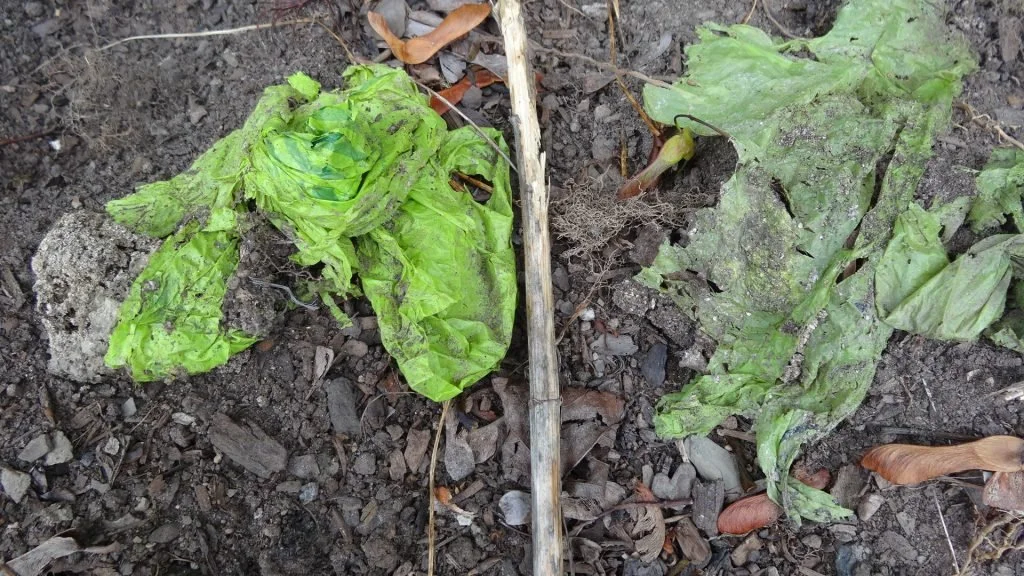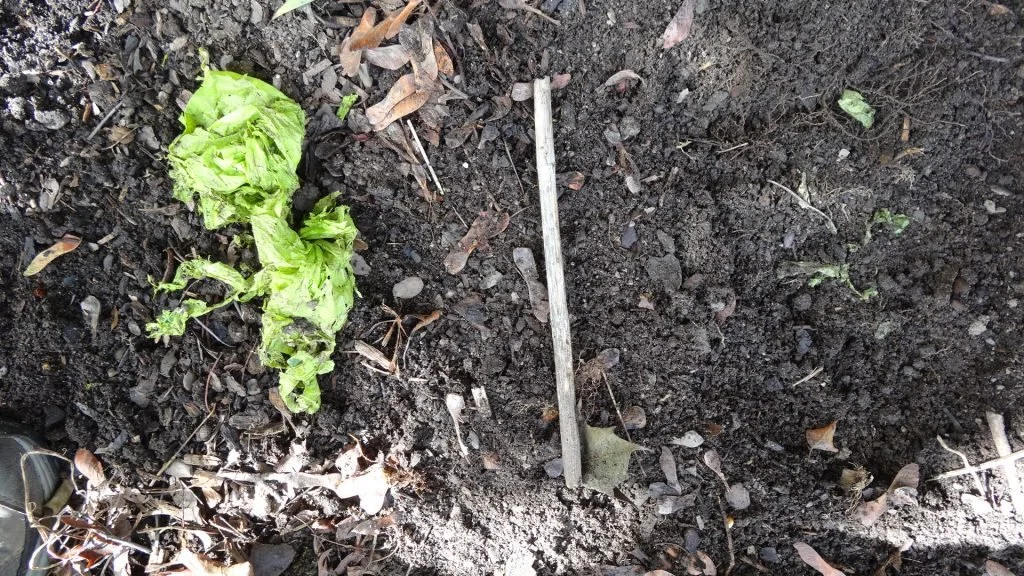Comparing Poop Bags
In this blog we compare the compostability of two brands of compostable dog waste bags buried in a typical Ottawa garden. On the left is a Unni 100% compostable bag (www.unni.world) and on the right is a bag from The Original Poop-bags (Poop-bags.com).
Unni 100% Compostable (left) and The Original Poop-bags (right) before use
As can be seen in the photo, the logo for the composting standard ASTM D6400, appears on the Original Poop-bag. The Unni bag shows two standards on the bag, the TÜV AUSTRIA Home S0737 OK compost and the EN 13432. Both bags show the BPI Compostable logo. These standards are all described below.
METHOD: The 2 bags containing dog waste were buried about 3 inches below the surface of a well mulched flower garden 29 November 2019 and then dug up and reburied in April, July and 1 October 2020.
RESULTS: In April 2020, the bags showed very little degradation. In fact, they appeared to be in perfect condition. Sorry, no picture. Just imagine typical poop bags full of, well, poop.
8 MONTHS: As can be seen in the next photo, there is no waste visible in or around either bag, so it seems the dog waste completely decomposed in 8 months. The bags themselves are partially degraded. The Unni bag still has a plastic bag like appearance while The Original Poop-bag resembles a thin withered leaf.
Unni and The Original Poop-bag shown side by side after 8 months
11 MONTHS: There is minimal residual of the Poop-bag while the Unni bag has substantial residual remaining after 11 months.
A Unni bag and The Original Poop-bag shown side by side after 11 months
CONCLUSION: Temperature certainly seemed to be a critical factor as most of the degradation occurred between April and October. It was great to see that both bags showed considerable decomposition, even in our cold climate.
STANDARDS: According to the ASTM.org website regarding the D6400 specification,
1.1 This specification covers plastics and products made from plastics that are designed to be composted under aerobic conditions in municipal and industrial aerobic composting facilities, where thermophilic conditions are achieved.
1.2 This specification is intended to establish the requirements for labeling of materials and products, including packaging made from plastics, as “compostable in aerobic municipal and industrial composting facilities.”
1.3 The properties in this specification are those required to determine if end items (including packaging), which use plastics and polymers as coatings or binders will compost satisfactorily, in large scale aerobic municipal or industrial composting facilities. …
Further information about the US standard ASTM D6400 can be found here and here.
According to European Bioplastics, the EN 13432, seen on the Unni bag, is the European standard that requires compostable plastics to disintegrate after 12 weeks and completely biodegrade after six months in industrial or municipal composting facilities which meet temperature, humidity, aeration and time requirements to degrade the waste to stable, sanitized products that can be used in agriculture. 90% is converted to CO2 and the rest is converted to water and biomass.
According to TÜV AUSTRIA (formerly Vinçotte) a product which meets the requirements of the EN 13432 standard may be awarded the Seedling logo seen on the lower left of the Unni bag.
The TÜV AUSTRIA Home OK compost logo, also seen at the bottom of the Unni bag, indicates that certification has been received from TÜV AUSTRIA, a Belgian company authorised by European Bioplastics.
The European Bioplastics website further notes that there are no international standards for home composting of biodegradable plastics, however there are some national standards, including the Australian norm AS 5810, the French standard NF T 510-800 and TÜV AUSTRIA OK compost Home. The latter, as well as the French standard, require at least 90% degradation in 12 months at ambient temperature.
Both bags also display the Biodegradable Products Institute (BPI) logo (what looks like a fish and a tree). The BPI label BPI Compostable in Industrial Facilities corresponds to the ASTM D6400 standard. The more recent Unni bag clearly indicates that it is BPI certified in industrial composting facilities. On 22 September 2020, this US certifier released their Guidelines for the Labeling and Identification of Compostable Products and Packaging which, if adopted by manufacturers, should go a long way towards reducing contamination of compostable material with non compostable plastics and other waste.
You can find the full description of the Unni bag composting certification on the Unni website.
If anyone has tried a similar experiment, we would love to hear about your observations in the comments.
UPDATE: The Original Poop-bag website displays a box of bags with the TÜV AUSTRIA Home OK compost logo. A cursor-over pop-up states that “these poop bags have an OK compost rating, making them compostable in both homes and commercial facilities.” The picture of the bag does not show this logo. Our observations are consistent with this certification.



